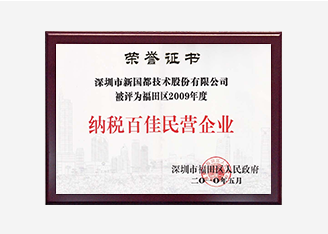Prostate specific antigen (PSA) is a 33KD androgen-dependent glycoprotein consisting of 237 amino acids and the gene is located on chromosome 19. PSA is mainly synthesized by prostate tubular cells and is present in semen. Normal human serum content is minimal. PSA is currently the most ideal serum tumor marker for prostate cancer. It is used for prostate cancer screening, staging and prognostic evaluation, curative effect judgment, and recurrence monitoring.
PSA level and surveillance of prostate cancer
The rapid rise of PSA before treatment often indicates rapid disease progression and early recurrence after treatment. If a single PSA test result after surgery is not sufficient to diagnose recurrence, it is necessary to re-examine multiple times in succession to show a continuous increase in PSA to indicate recurrence. The guideline "Recommendations for the Clinical Application of Tumor Markers" formulated by the Laboratory of the Chinese Medical Association recommends that the PSA test value rises above 2ug/L after the patient's lowest value is defined as "biochemical recurrence." Biochemical recurrence is a precursor to the development of clinical local recurrence and distant metastasis. Therefore, once a biochemical recurrence occurs, it is necessary to observe the changes of PSA more closely.
PSA level and diagnosis of prostate cancer
Clinically determined total prostate specific antigen (T-PSA) includes free prostate specific antigen (F-PSA) and bound prostate specific antigen (C-PSA) in serum.
PSA in serum is mainly combined with α1 antichymotrypsin (ACT) (PSA-ACT), while F-PSA is an inactive PSA that does not bind to protein. T-PSA in serum refers to one of the two with. Serum T-PSA>4.0 ug/L is abnormal, and serum PSA level>10 ug/L. The positive predictive value of this test for prostate cancer can be as high as 40%-50%. When serum T-PSA is between (4-10) ug/L, F-PSA level is negatively correlated with the incidence of prostate cancer. When the ratio of F-PSA/T-PSA is less than 0.15, it is more likely to indicate prostate cancer.
Reference range
T-PSA<4.0ug/L, F-PSA<0.8ug/L, F-PSA/T-PSA>25%.
Clinical study of PSA-positive prostate cancer patients
This study is a clinical study of 65 cases of PSA-positive prostate cancer patients with ACTL targeted anti-tumor cell immune technology (ACTL technology). The ACTL technology is a recombinant adeno-associated virus transfected tree carrying tumor-associated antigen genes. Dendritic cell-based targeted anti-tumor cell immunotherapy technology.
Patient selection criteria: previous endocrine therapy failed; no history of immunotherapy; peripheral blood leukocytes above 3.0×109/L; tumor tissue MHC-I molecules (HLA-I antigen) positive; new metastatic lesions and/or serum The level of tumor markers continues to rise by more than 50%; serum PSA is positive and tumor tissue PSMA is positive. ACTL treatment targets the target antigens: prostate specific antigen (PSA) and prostate specific membrane antigen (PSMA).
Treatment plan: The course of treatment is three months, a total of 6 treatments, one treatment every 15 days. Each return ≥ 2×108 CTL, return within 30 minutes. No other anti-tumor drugs are given during the treatment.
Effective observation indicators for treatment:
1. Changes in serum tumor markers: decrease> 50%;
2. Imaging changes: the tumor load decreased or disappeared or remained unchanged.
